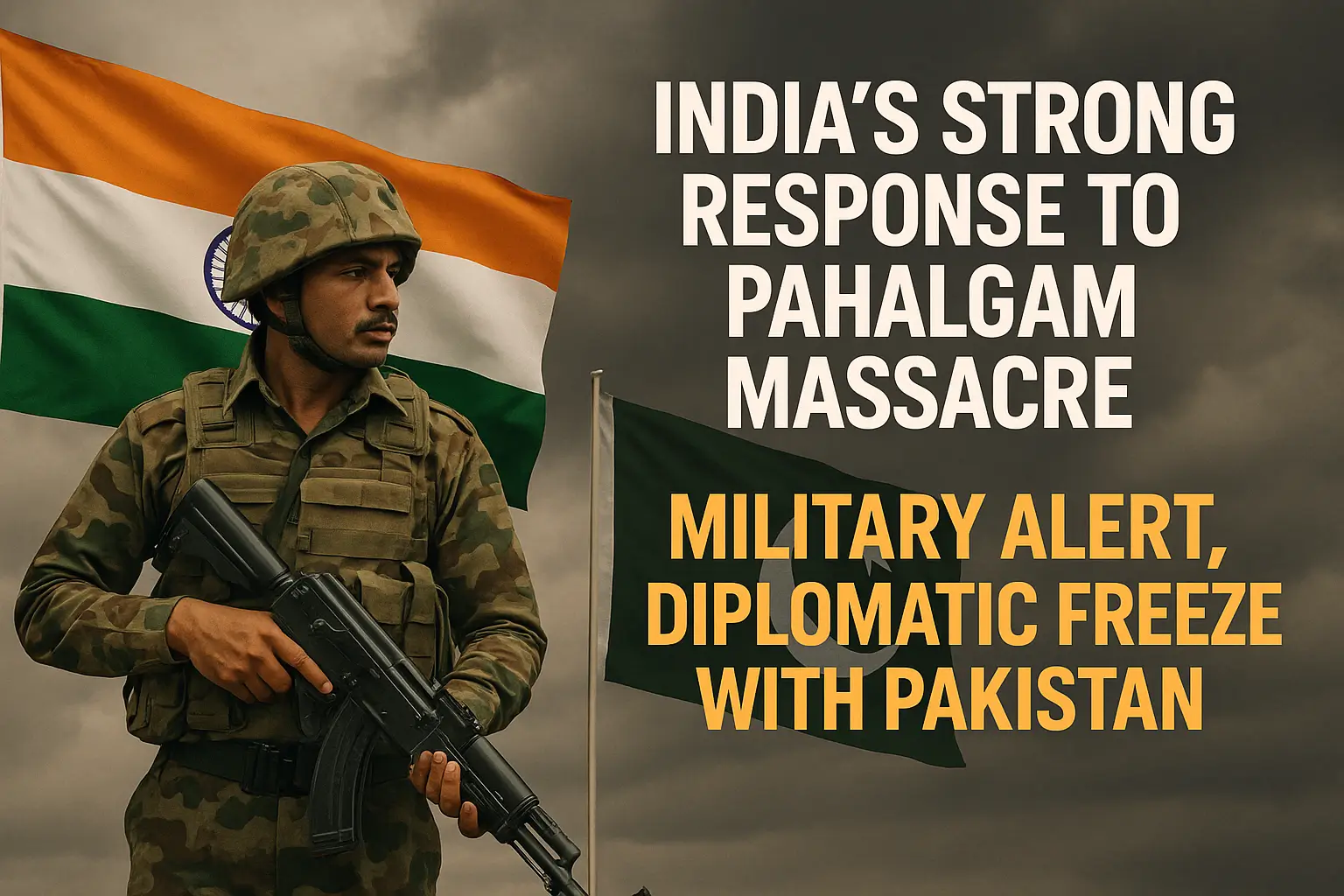The Pahalgam massacre, a tragic event that unfolded in the Kashmir region, has sparked outrage and concern across India and the international community. The massacre, which saw the brutal killings of Indian civilians, has prompted a robust and multi-faceted response from India. From military alerts to a diplomatic freeze with Pakistan, the situation has highlighted the growing tensions between the two neighboring countries. In this article, we will delve into India’s response to the Pahalgam massacre, the implications of the military alert, and the broader diplomatic fallout with Pakistan.
The Pahalgam Massacre: A Tragic Incident
The Pahalgam massacre took place on [insert date] when a group of heavily armed militants launched an attack in the Pahalgam region of Jammu and Kashmir. The attackers, believed to be Pakistani nationals, targeted a peaceful group of Indian civilians, resulting in a significant loss of life. The massacre is seen as one of the most tragic incidents in the ongoing conflict in Kashmir, where violence between militants and Indian forces has been a recurring issue for decades.
The massacre left the nation in shock and mourning, with many Indians questioning the state of security in Kashmir and the growing influence of cross-border terrorism. The attack, which targeted unarmed civilians, was a clear violation of international law and human rights, and it brought renewed attention to the Kashmir conflict.
India’s Military Alert: A Show of Strength
In the wake of the Pahalgam massacre, India immediately raised its military alert, signaling a strong stance in defense of its sovereignty. The Indian Armed Forces were put on high alert, with additional troops deployed in sensitive areas of Jammu and Kashmir. This was a clear signal that India would not tolerate such acts of violence and was prepared to take all necessary measures to ensure the security of its citizens.
India’s military response was swift and decisive. Air force and ground forces carried out targeted operations, focusing on militant hideouts and their logistical networks. The government also emphasized that the Indian military would not hesitate to take action against those responsible for the attack. The show of strength was aimed at sending a strong message to Pakistan, which India holds responsible for sponsoring terrorism in the region.
The military alert also signaled India’s readiness to defend its territory and citizens against any further aggression. With tensions running high, the Indian military remains vigilant, and there have been reports of increased intelligence operations to prevent any further attacks from militants operating in the region.
Diplomatic Freeze with Pakistan
Along with the military alert, India also took immediate diplomatic action in response to the massacre. The Indian government announced a diplomatic freeze with Pakistan, suspending all bilateral talks and engagements. This included the suspension of all trade agreements, cultural exchanges, and people-to-people contacts between the two nations.
India’s diplomatic freeze was a direct consequence of Pakistan’s continued support for militant groups operating within India’s borders. India has long accused Pakistan of harboring and sponsoring terrorists, and the Pahalgam massacre was seen as a culmination of these ongoing hostilities. The diplomatic freeze sent a strong message to Pakistan that India would no longer tolerate such acts of aggression and would respond with full force.
India also called for international condemnation of Pakistan’s role in the attack. At the United Nations and other international forums, India urged world leaders to hold Pakistan accountable for the atrocities committed in Kashmir. The diplomatic freeze and the call for international support were seen as efforts to isolate Pakistan and bring attention to the issue of cross-border terrorism.
Global Reactions and the Road Ahead
The Pahalgam massacre and India’s strong response have drawn mixed reactions from the global community. While many countries have expressed solidarity with India and condemned the violence, others have called for restraint and dialogue between the two nations. The international community has urged both India and Pakistan to refrain from escalating tensions further, as any further conflict could have devastating consequences for the region and beyond.
Despite global calls for peace, the situation remains fragile. The ongoing conflict in Kashmir, exacerbated by the Pahalgam massacre, highlights the urgent need for a lasting resolution to the Kashmir dispute. However, with Pakistan’s continued involvement in supporting terrorism, India has made it clear that it will not back down in its fight against terrorism.
Conclusion
The Pahalgam massacre stands as a stark reminder of the challenges that India faces in its fight against terrorism and cross-border aggression. The strong military response and diplomatic freeze with Pakistan reflect India’s determination to protect its citizens and defend its sovereignty. While the road ahead remains uncertain, India’s response to the massacre sends a clear message that the nation will not compromise on its security or allow terrorism to dictate the future of the region.
As the situation continues to unfold, the global community must come together to address the root causes of the Kashmir conflict and work towards a peaceful resolution. Until then, India remains resolute in its commitment to protecting its people and ensuring that those responsible for the Pahalgam massacre are brought to justice.

